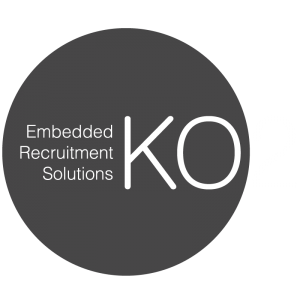In our work as a recruitment partner in the electronic embedded systems sector, we’ve seen numerous occasions where a client needs to fill a role urgently. One of the questions they’ll sometimes ask in these instances is “How long does it take to fill a position?”.
Finding the balance between ensuring a thorough hiring process and keeping things moving can be difficult. Time to hire varies quite a lot between companies and between roles, as the kind of candidate required and the skills they need will impact how long the attraction and screening processes take.
If you’re eager to fill a role and get a new employee started in your team, understanding how long the hiring process will take is very important. In this article, we share our insight into what determines the length of a hiring process and why certain steps are important, and also give advice on how engineering companies can improve their average hiring process time.
Why Does the Hiring Process Take So Long?
We understand that there are plenty of instances where our clients want to fill a role, fast. If an integral team member leaves then finding a replacement who can fill their shoes is a priority, and it can be frustrating when the ideal candidate isn’t easy to find.
As we’ll discuss below, there are plenty of factors that can lead to a long hiring process. Whether there are issues with your recruitment approach or inefficient screening systems, decreasing your hiring timeline can be as simple as making a couple of changes to your recruitment process.
However, before we deconstruct the different hiring steps and how long they each should take, it’s important to highlight the problems with hiring too fast.
If you’re looking for a talented candidate who will also be the right fit for your workplace culture, it’s unlikely that the ideal person will simply appear once you start advertising a role. Sourcing the right candidates takes time, and whether you’re searching yourself or working with a recruiter, you should be aware of why a thorough sourcing process is a good thing.
Screening candidates is also essential for successful recruitment, as hiring an unsuitable candidate will usually result in having to repeat the entire process in a couple of months. The vetting and interview process should be efficient, but rushing it could cause problems, so it may take some time.
If it seems like the average hiring process time is unnecessarily long, it might be helpful to understand the typical timeline for recruitment. In the UK and Ireland, the average time to hire in tech and engineering is 28 days, with the average time to fill being 56 days.
When our clients are hiring for a permanent position, it can sometimes take around three months for the ideal candidate to start in the role. So whilst shaving unnecessary additional time off your hiring process is good, there are valid reasons why you should be patient and thorough with certain aspects.

How Long Does It Take To Hire Someone?
In order to calculate how long your hiring processes will take, you need to outline every stage of the recruitment process and estimate the number of days each hiring step will take.
As you’re auditing your typical hiring process timeline, consider whether you can make each stage more efficient. You can read our guide to the best interview process of 2023 for more guidance, but also consider whether every stage is necessary, what can be combined, and what can be automated.
How Long Does the Application Process Take?
Once you’ve started advertising a role or approaching potential candidates, the first time-consuming stage of the recruitment process is the initial application. Not only can the length of this impact the overall time to hire, but it also can impact the number of candidates that actually apply for your role.
Research shows that job applications that take longer than five minutes to complete can lead to between 50% and 75% of candidates dropping out before they’ve even applied. It’s important to collect necessary information about applicants, but you shouldn’t require a massive time commitment at the very first stage, as this can put a lot of people off.
Ask yourself realistically ‘How long does the job application process take?’ and decide whether you can make this step quicker. Identify the key information you need from candidates and only ask for this, which will also make your initial screening process more straightforward, as you’ll have less data to sift through.
How Long Does It Take to Schedule an Interview?
Finding a time when a successful candidate can schedule an interview is the next stage of the hiring process which can extend the time it takes.
To both keep the hiring process brief and retain the most valuable candidates, you want to send an offer for an interview as soon as possible after an application has been approved. This can be difficult if a candidate is busy or you have a lot of candidates you’re trying to see, which is why flexibility is key to keeping this stage brief.
Ideally, you should set aside several days for interviews and then ask candidates for their preferred times, instead of just giving them a slot and expecting them to make it. This also gives a more positive impression of your company as an employer, which can increase the likelihood of job acceptance later down the line.
How Long Is a Job Interview?
In the engineering industry, especially for roles like software developer, the interview stage of recruitment can end up being very drawn out. In some cases, candidates have an initial phone interview, a technical assessment and then a final face-to-face interview, which could all be spread out over the space of a month.
As we discussed above, taking the time to properly screen candidates and gauge their suitability for a role is very important. We’d never suggest rushing the interview process for the sake of cutting time, but we would advise that companies look at their current interview procedures and decide whether they could be combined or made more efficient.
For example, does a technical interview need to be on a different day? Could the phone interview be automated with a questionnaire or videos?
The key to success at this stage is identifying what you need to get from the interview, deciding what is essential and then working out the most efficient procedure to do this.

How Long Does It Take To Hear Back From a Job Interview?
Once you’ve decided whether to offer a candidate a job or not, getting back to them promptly is very important. This is often one of the fastest stages of the hiring timeline, but should still be assessed to determine its effectiveness and improved if needed.
One of the best things to do at this stage is to give all candidates a date that they should expect to hear back from you and then make sure you stick to this. Ideally, you should let them know within a week whether or not they have been successful, especially if they’re a talented candidate who may also be facing other job offers.
It’s also important to let candidates know if they have been unsuccessful, even if this is just with an email. You can automate this process to save time, but should always ensure that you share the news fairly and offer to give feedback.
How Long Does the Onboarding Process Take?
You might think that the hiring process timeline ends with a job offer, but the time between an acceptance and a candidate actually starting in the role can be significant and may lengthen the overall process. This is important to consider if you need to fill a position urgently, as some of the factors that dictate this stage are out of your control.
A candidate may need to work through a notice period before they can start a new role, or they might request a few weeks between jobs to relocate or get other things sorted. You should be clear from the start if you need a candidate to start promptly, but should also do everyone you can on your side to ensure that, when they do join your team, they can hit the ground running.
This involves having a seamless and efficient onboarding process which delivers all the necessary training quickly and efficiently. Other things that can help improve onboarding time include giving a new candidate a mentor, clearly outlining expectations and tasks for their first few months, and scheduling regular check-ins to keep updated on their progress.

How to Improve Your Hiring Timeline
We’ve discussed what is required in each stage of the hiring process and how you can identify where you’re taking too much time. Now we’re going to discuss how to improve the overall hiring timeline, summarising the advice we shared above and giving other tips on ensuring faster hiring.
First, look at your current recruitment process and identify the stages that are essential in hiring the right candidate. Before you start trying to optimise the timeline, you should be clear on what needs to stay, so that you don’t negatively impact your recruitment approach.
If you have access to data about previous recruitment for roles, collect this and figure out how long each stage of the process is taking, as well as the average time overall. This can help you to identify which areas you need to work on first, giving you a clear list of priorities.
Following the advice we’ve shared above, consider whether you can combine stages like interviews, automate communication like telling candidates they’re through to the next stage, and be strict with timelines to help speed up decisions. Making the recruitment process more efficient shouldn’t make it more effective, but you’ll likely find points in your current approach that are wasting time and could be improved by trimming them down to their essential parts.
Finally, remember that candidate experience should be considered and prioritised at all stages of the process. Whilst shortening the process can contribute to this, make sure that you’re still communicating with every candidate and meeting their expectations.

Summary
One of the fastest ways to give a candidate a poor impression of your company is through an unnecessarily lengthy hiring process. It’s important to ensure that you’re efficiently screening applicants to save yourself issues later down the line, and to be realistic about what is actually involved in hiring engineers. But you should also have efficiency and candidate experience in mind, and keep asking yourself ‘How long does the hiring process take?’ to try and make yours as streamlined as possible.
If you’re looking for help with your recruitment process and want to find the best candidates faster, working with a specialist recruitment partner like KO2 will help. Find out more about our client recruitment services or get in touch to speak to the team about what you’re looking for.







